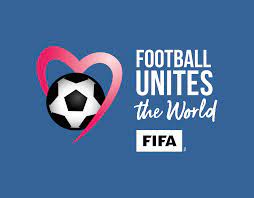July 4 – FIFA has teamed up with ‘several’ United Nations agencies to use the 2023 Women’s World Cup to highlight a range of social causes.
The social topics were selected after consultation with the 33 qualified nations, players and other stakeholders.
Tag lined under ‘Football Unites the World’, eight key messages will be promoted at all 64 games of the finals tournament:
- Unite for Inclusion – in partnership with UN Human Rights
- Unite for Indigenous Peoples – in partnership with UN Human Rights
- Unite for Gender Equality – in partnership with UN Women
- Unite for Peace – in partnership with UNHCR, the UN Refugee Agency
- Unite for Education for All – in partnership with the UN Educational, Scientific and Cultural Organization (UNESCO)
- Unite for Zero Hunger – in partnership with the UN World Food Programme
- Unite for Ending Violence Against Women – in partnership with UN Women
- Football is Joy, Peace, Love, Hope & Passion – in partnership with the World Health Organization (WHO)
“Football unites the world and our global events, such as the FIFA Women’s World Cup, have a unique power to bring people together and provide joy, excitement and passion,” said FIFA President Gianni Infantino. “But football does even more than that – it can shine the spotlight on very important causes in our society. After some very open talks with stakeholders, including member associations and players, we have decided to highlight a series of social causes – from inclusion to gender equality, from peace to ending hunger, from education to tackling domestic violence – during all 64 matches at the FIFA Women’s World Cup.”
While FIFA cracked down on rainbow armband ‘messages’ of support during the world cup, threatening squads and players with sanctions and cards, at the Women’s World Cup each message will be promoted via the team captains’ armbands, pitchside digital LED boards, large flags presented on the pitch, giant screens in stadiums and via social media.
Specific messages of LGBT+ support and inclusivity are not within the FIFA messaging though “unite for inclusion” is a handy catch-all. LGBT+ support might no longer be ‘haram’ in FIFA world but it feels like it is probably still close. It is also interesting that the men’s game was prepared to make such a bold statement of support, despite their being no openly gay men within the national team game. In the women’s game where there are dozens of openly gay women who are celebrated, there is no specific message of support and inclusion for the LGBT+ community from FIFA.
That said, and the uncomfortable good cause ‘spin’ that blanks the LGBT+ community noted, the ability to communicate core social messaging to an expected billion+ audience, should be welcomed. It would be even better if the outcomes could be measured.
FIFA Secretary General Fatma Samoura said: “It’s not just about what happens on the pitch. We are committed to using football’s power as a force for good and leveraging our partnerships with United Nations agencies to achieve our goals. We want to say thank you. Thank you to the players and the teams for sharing your support, for these causes. United, we can make a difference.”
Contact the writer of this story at moc.l1745109677labto1745109677ofdlr1745109677owedi1745109677sni@n1745109677osloh1745109677cin.l1745109677uap1745109677
